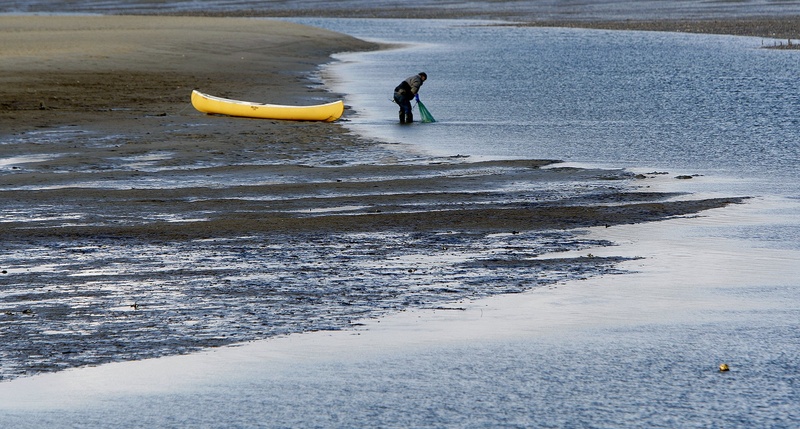CONCORD, N.H. — University of New Hampshire and University of Maine researchers are leading a project aimed at giving states and communities stronger scientific data they can use when deciding whether to close beaches or shellfish harvesting locations.
The $6 million, three-year project funded by the National Science Foundation is called the New England Sustainability Consortium. It will select numerous sites to study how natural processes such as water flow in rivers and human activities such as land development influence the presence of bacteria in coastal watersheds. UNH Cooperative Extension also will develop a stewardship network to get natural resource organizations, public agencies and volunteers involved in the work.
The consortium is managed by a program based at the two schools and will include six other schools in Maine and New Hampshire.
Jan Nisbet, senior vice president for research at UNH, said the project will directly link policy decisions regarding beach and shellfish bed closings with scientific data, helping the states assess the impact on their economies when beaches and beds are closed.
Over the past several years, there’s been an increase in the closure of shellfish beds along the New Hampshire and Maine coasts, in part because climate change has led to the introduction of invasive species and a proliferation of troubling viruses, she said. While there already are a number of volunteer networks up and down the coast collecting data, Nisbet said the new project will take a more scientific approach.
Researchers hope to provide a better understanding of patterns, such as how shellfish bed closings are tied to weather.
“At the same time, we’re also very interested in what happens when shellfish beds are closed. What happens to people who rely on that as a way of life?” she said. “Are people fishing and clamming in spite of the closures, and what’s the impact on population health?”
Officials say the work is important given that the value of coastal recreation alone in Maine and New Hampshire is estimated at $400 million a year.
“New Hampshire’s coastline is critical to our economy and the Granite State’s natural beauty, and this research will play a key role in efforts to protect these areas for future generations,” U.S. Sen. Jeanne Shaheen, D-N.H., said in a statement.
Other participating schools include Great Bay Community College, Plymouth State University, Keene State College, the University of Southern Maine, College of the Atlantic and University of New England. The project is being managed by the Experimental Program to Stimulate Competitive Research at UNH and the University of Maine.
Send questions/comments to the editors.



Success. Please wait for the page to reload. If the page does not reload within 5 seconds, please refresh the page.
Enter your email and password to access comments.
Hi, to comment on stories you must . This profile is in addition to your subscription and website login.
Already have a commenting profile? .
Invalid username/password.
Please check your email to confirm and complete your registration.
Only subscribers are eligible to post comments. Please subscribe or login first for digital access. Here’s why.
Use the form below to reset your password. When you've submitted your account email, we will send an email with a reset code.